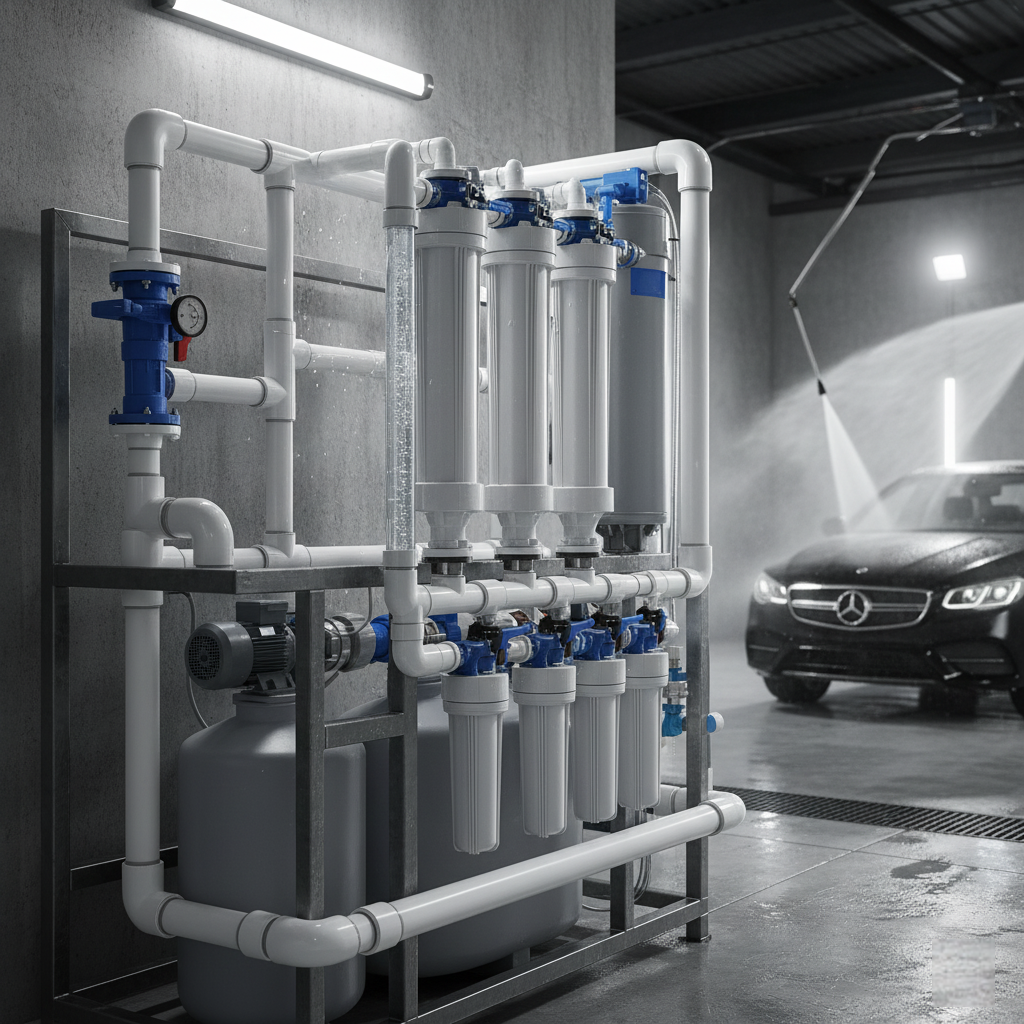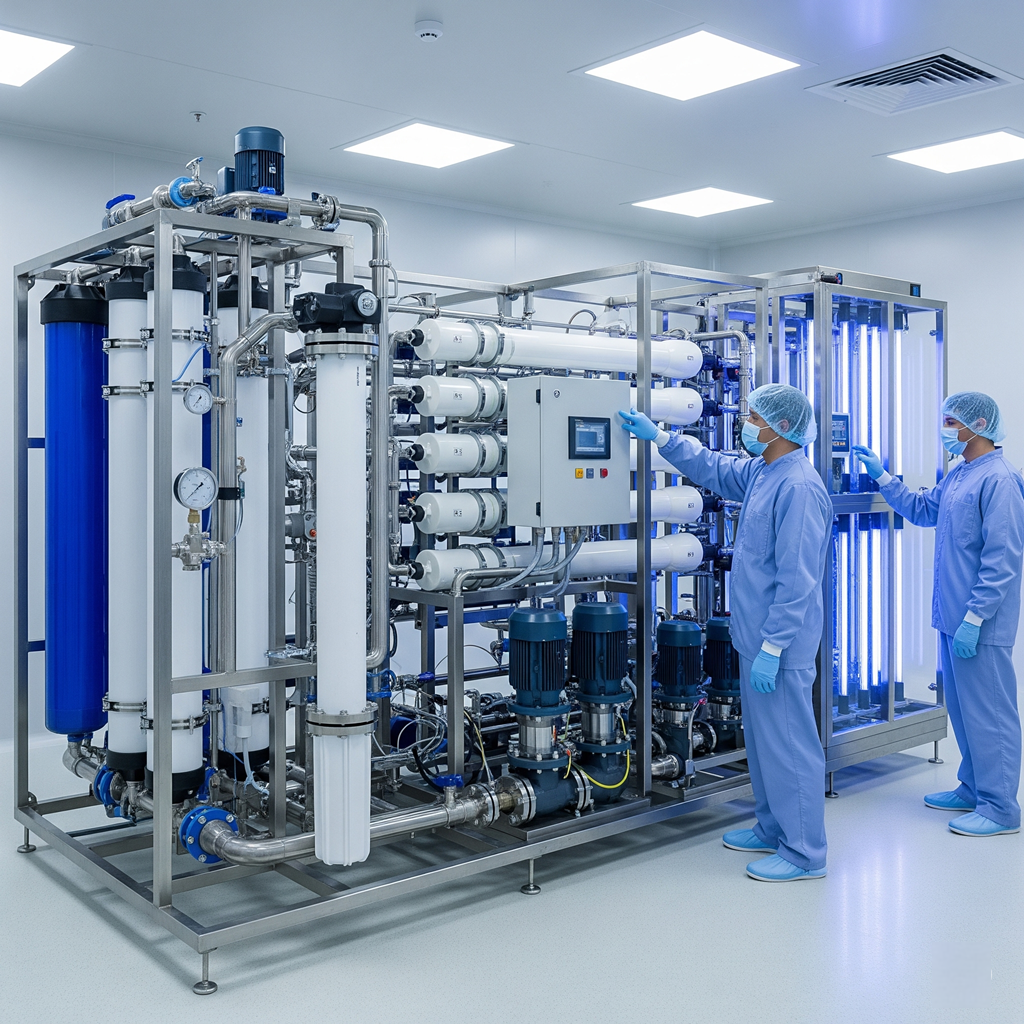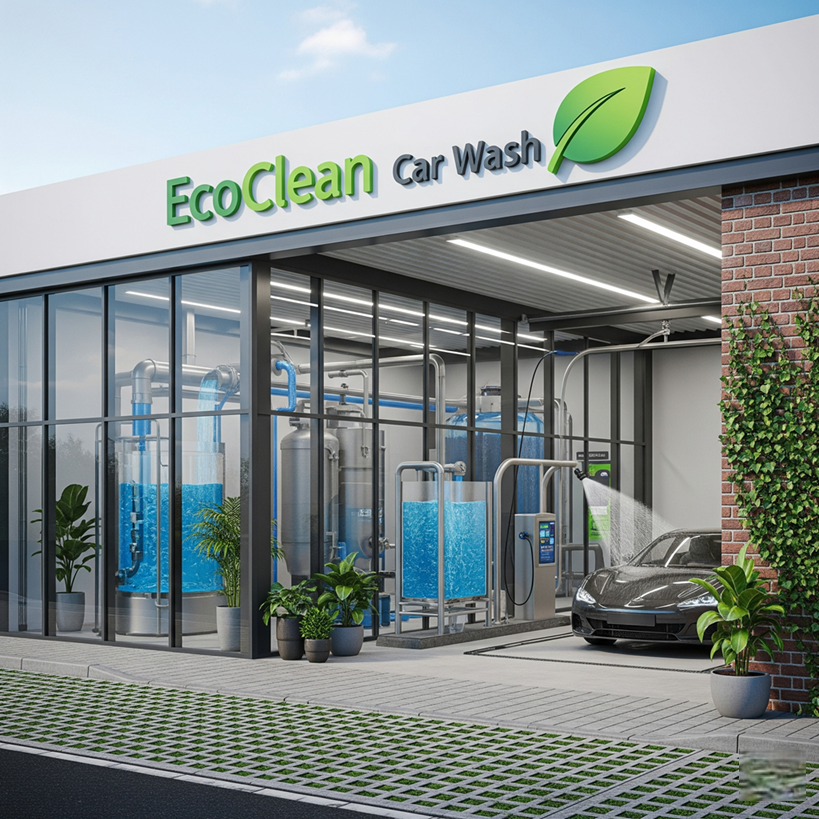
User Guide: The True Cost and ROI of Ultrafiltration Systems in Car Washes
Ultrafiltration systems are advanced water treatment technologies increasingly adopted in the car wash industry to promote water recycling and reduce environmental impact. Using membrane filtration, these systems effectively remove contaminants from car wash wastewater, allowing clean water to be reused in washing operations. This technology not only significantly reduces water consumption, but also reduces consumption by up to 90%. It also offers significant cost-saving potential through reduced water and wastewater charges, making it a significant innovation in sustainable car wash operations.
The financial implications of ultrafiltration systems present both opportunities and challenges for car wash operators. While the initial investment can be significant, ranging from $1.4 million to $2.1 million for a full installation, the long-term savings are compelling. Operators can expect a payback period of 5 to 140 months, depending on water usage and local costs, with annual savings of up to $20,000.
Furthermore, compliance with increasing regulatory standards, such as those imposed by the Clean Water Act, has driven the need for such systems, increasing their importance in this sector.
Ultrafiltration Technology
Ultrafiltration (UF) technology plays a pivotal role in the car wash industry, particularly in water treatment and recycling systems. This membrane filtration process effectively separates particles based on their size, removing contaminants from car wash wastewater while allowing the clean water to be reused in wash cycles.
Read more about: What is an Ultrafiltration System for Car Washes?
Key Features of Ultrafiltration
Ultrafiltration membranes are capable of filtering particles with diameters ranging from 10 to 200 angstroms (0.001 and 0.02 microns). This includes not only suspended solids and bacteria, but also larger organic particles.
This process produces purified wastewater, known as permeate, which can be safely reused in various applications within the car wash process. The membranes are designed to withstand various environmental conditions and exhibit good thermal and chemical stability, as well as resistance to microbial growth.
In this article, you’ll learn more about The advantages of ultrafiltration systems for car washes.
Applications in Car Washes
Integrating ultrafiltration systems into car washes significantly enhances water conservation efforts. For example, a typical car wash may consume approximately 50 gallons of fresh water per vehicle. However, by implementing an ultrafiltration system, water consumption can be reduced by up to 25 gallons per vehicle, depending on the reclamation strategy used.
These systems not only mitigate the environmental impact but also offer cost-saving opportunities by reducing water and wastewater charges.
Benefits of Ultrafiltration
The benefits of using ultrafiltration technology in car washes go beyond water savings. These systems are designed to be highly efficient, capable of capturing more than 99% of particles larger than 10 microns, including debris that cyclone filtration systems may ignore.
Ultrafiltration membranes can also be cleaned and reused, enhancing sustainability and operational efficiency. Regular maintenance practices, such as backflushing, are essential to maintain system performance and extend the life of the filter media, ensuring consistent flow rates and water quality.
Future Developments and Innovations
Ongoing research into ultrafiltration technology continues to advance its applications in the car wash industry. Recent studies have focused on the development of new ultrafiltration membranes specifically designed to treat car wash wastewater, enhancing the efficiency and effectiveness of these systems.
With increasing regulatory pressures and the growing importance of sustainability, ultrafiltration systems are expected to play a key role in the future of water treatment and recycling in car washes, in line with the broader industry goals of environmental responsibility and resource efficiency.
Costs Associated with Ultrafiltration Systems
Ultrafiltration (UF) systems are increasingly being used in car wash operations due to their ability to efficiently recycle water and reduce environmental impacts. However, implementing these systems entails various costs that operators must consider.
Initial Investment
Initial costs for ultrafiltration systems can be significant, typically ranging between $1,400,000 and $2,100,000 for a complete conveyor car wash system.
This investment covers equipment purchase and installation costs, which can vary greatly depending on project details and site conditions, often accounting for between 15% and 40% of the total project cost.
Operators must also consider capital expenditures associated with specialized technology packages that may be required to achieve optimal performance.
Operating Costs
Once ultrafiltration systems are installed, they incur ongoing operating costs, including electricity, chemicals, and routine maintenance. Electricity costs are primarily allocated to operating the pumps and filtration equipment, while chemical inputs and maintenance are essential to ensure the system operates effectively over time.
For example, the average total cost of water treatment for conventional systems was $0.0496/m3, compared to $0.0596/m3 for ultrafiltration systems. These operating costs require a comprehensive analysis to assess the financial impacts over the system’s life cycle.
Economic Feasibility
Although ultrafiltration systems may require a higher initial investment, they can result in significant long-term savings. The ability to recycle more than 90% of the water can significantly reduce water and energy costs associated with car wash operations.
Furthermore, these systems can offer a payback period of between 5 and 140 months, depending on operational efficiency and local water costs. This can save facilities up to $20,000 annually.
Regulatory and Environmental Considerations
Regulatory frameworks, such as the Clean Water Act in the United States, impose strict standards on water discharge and encourage recycling initiatives, which promotes the adoption of ultrafiltration systems in car washes.
Compliance with these regulations may entail additional costs, but ultimately improves operators’ sustainability and environmental impact.
Incentives and Financing Opportunities
To mitigate costs, development agencies, local governments, and international financial institutions offer various incentives and grants aimed at promoting water recovery systems.
Collaborating with local and national authorities can provide access to financial assistance, making the implementation of ultrafiltration systems more economically viable for car wash operators.
Return on Investment
The implementation of ultrafiltration systems in car washes offers significant financial benefits, providing a satisfactory return on investment. These systems not only enhance water efficiency but also contribute to significant long-term savings. Initial setup costs for ultrafiltration systems may seem high. Estimates range from $10,000 for capital expenditures and approximately $3,000 for annual operating costs.
However, the economic benefits become clear when considering the potential for water savings and reduced operating costs. Ultrafiltration systems are designed to recycle water efficiently, achieving recovery rates of over 90% in some cases. By reducing water consumption, car washes can significantly reduce their monthly water bills. This translates to a payback period ranging from less than a year to several months, depending on the type of system and local water costs. For example, these systems can reduce water treatment costs per unit to approximately $0.0163/m³, highlighting their efficiency. Furthermore, implementing these systems may qualify car washes for tax incentives or rebates aimed at promoting environmentally friendly technologies, improving return on investment.
In practice, ultrafiltration systems can achieve significant annual savings. Studies indicate that car washes using closed-loop water treatment systems can save up to 5,000 m³ of fresh water annually, achieving savings of approximately $20,000 annually. These savings are significant, especially with the increasing scrutiny of the car wash industry regarding environmental sustainability and operating costs. Additionally, incorporating ultrafiltration systems can enhance customer satisfaction by providing consistent water quality and delivering high-gloss finishes that reduce the need for rework, thus attracting more customers.
Thanks to advanced water treatment technologies, car washes are not only improving their financial performance but also aligning with growing consumer preferences for environmentally friendly services.
Conclusion
Controversies surrounding ultrafiltration systems focus primarily on their high initial costs and operational complexity. That can discourage small businesses from adopting this technology. Furthermore, compliance with strict environmental regulations and ongoing maintenance can pose significant challenges.
However, with growing consumer demand for eco-friendly services, many car washes are turning to ultrafiltration as a means to enhance customer satisfaction and achieve sustainability goals, ultimately strengthening long-term customer loyalty.
As the car wash industry evolves, technological innovations in ultrafiltration systems are expected to drive market growth and operational efficiency. The integration of smart water management solutions and modular systems paves the way for enhanced sustainability and resource efficiency, in line with the broader trend toward environmentally responsible business practices. This is a competitive environment increasingly defined by consumer preferences for eco-friendly options. Ultrafiltration systems become a vital investment for car wash operators committed to reducing their environmental footprint while achieving economic viability.


























